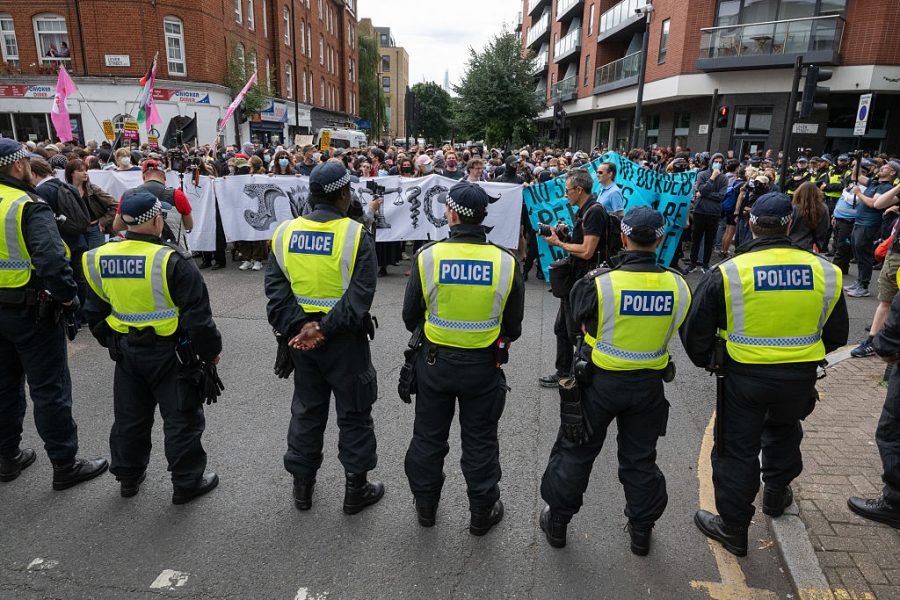Policing and crime commissioners haven’t exactly fired up the public imagination since they were introduced in 2012. PCCs were intended to make police forces more accountable, but you’re more likely to come across one in the headlines for personal misconduct than their crime-fighting zeal. However, there are some signs of change in the air thanks to our crisis of illegal migration.
Hampshire and the Isle of Wight’s PCC Donna Jones revealed yesterday that she had been effectively told to ‘shut up for the sake of diversity’ by a new Labour minister after comments she made on the widespread disorder last August following the Southport attack.
The government still hides behind the ‘operational independence’ of the police
Jones told the Times that she released a statement that urged the government to consider the causes of disturbances that left scores of police officers injured and hundreds arrested. She claimed the unnamed minister told her that they both knew the riots had nothing to do with immigration. She was asked to withdraw her ‘misleading’ statement and told that it was contributing to community tension.
I have no reason to doubt the veracity of Jones’s story but it is right to point out that she is currently engaged in a mayoralty contest for the area, which might explain the timing of this disturbing news. The fact her original comments on the Southport riots were measured and sensible was lost on the incoming ministers last year, who immediately cleaved to the ‘far right thuggery’ narrative promoted by Keir Starmer himself.
The decisive police action which eventually arrived last summer after days of the most serious social disorder for over a decade was right. A new government confronted by widespread social chaos following a racially implicated atrocity can be forgiven a few missteps. But where is the evidence ministers are now actually listening to those few PCCs who have put their heads above the parapet?
Shortly after Axel Rudakubana murdered three children in Southport last July – the act that lit the touchpaper on large-scale disturbances in as many as 27 cities and towns ranging from Belfast to Aldershot – the PCC for Merseyside, Emily Spurrell highlighted the ‘crisis of trust’ in Britain’s institutions following the atrocity. But the review of the Southport attack ordered by the Home Secretary Yvette Cooper earlier this year contains no specific direction to investigate the causes of the riots that followed.
Moreover, as public outrage grows over the placing of mainly male asylum seekers in hotel accommodation and their association with serious crime, the government still hides behind the ‘operational independence’ of the police when it comes to poor decision-making. As do many PCCs. This void of accountability has encouraged more of the same communications failures that directly contributed to rioting twelve months ago.
The inexplicable and indefensible tactic of withholding the immigration status of two men charged with raping a 12-year-old white girl in Nuneaton recently is a case in point. Given all that has happened, it was plainly in the interests of the police to deliver full, accurate and relevant information on the persons arrested. Yet they refused, relying on the ludicrous defence of having no permission from the College of Policing to do so. The PCC was late to the party and was able to wash their hands of operational responsibilities. So what are PCCs actually for?
The government still seems to be in denial that we have a serious crisis of confidence and trust in policing in which it is complicit. When it is reminded of this fact, it reacts reflexively in a way that will be familiar to those who campaign for women’s rights to female-only spaces – i.e. that those who have legitimate concerns are bigots. Our policing and crime commissioners have a chance to reclaim some relevance now as polarisation grips large parts of what would be dismissed as ‘flyover country’ if this was the US. The people who are not talked to or about in Westminster, except to be traduced, are on the march.








Comments